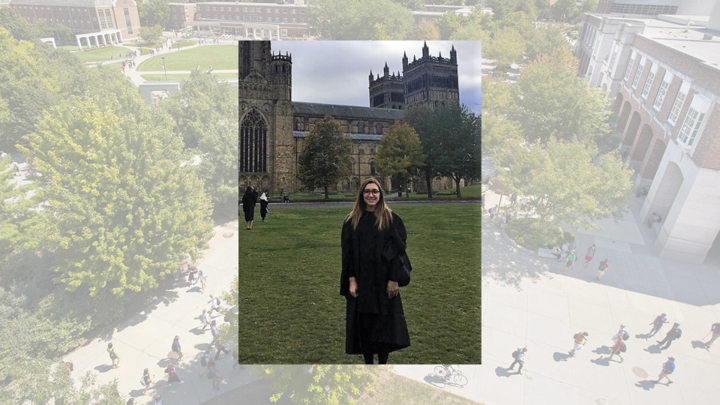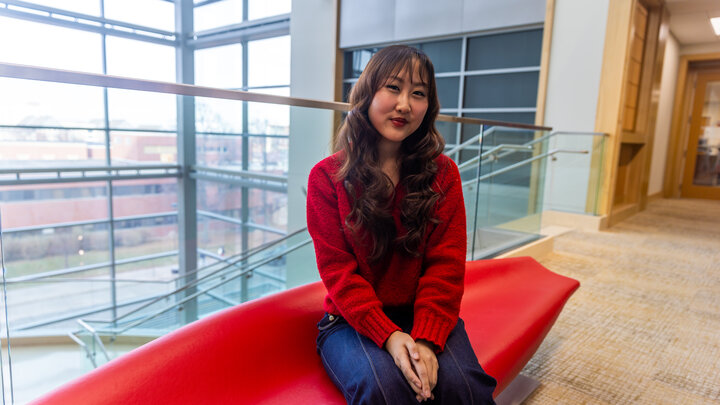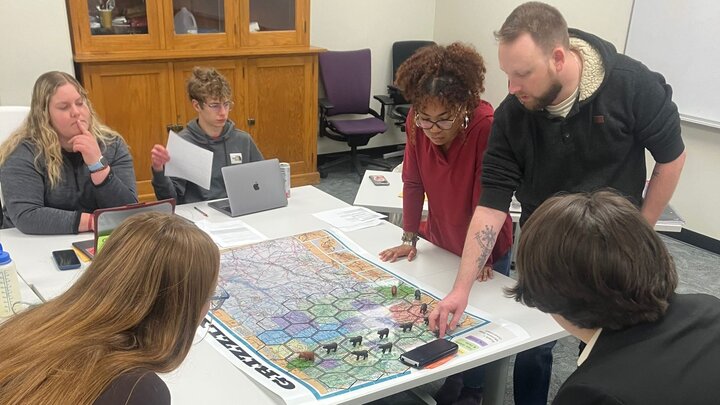Majors and minors: Political Science Major, Global Studies Minor
Involvement: UNL Rotaract Club, Alpha Delta Pi
What have you been up to since graduation?
Since I graduated from UNL in 2018, I moved to England to undertake a master’s degree in International Relations at Durham University.
Why did you decide to get your masters in England?
Being from Europe, I really wanted to study at least one year there, as I have done all my undergraduate years in the US. I wanted to be able to compare the different university systems, but also have a new academic experience in another country. I chose England because I was very intrigued by this country (for its culture and history), and universities there usually have a good reputation in the world. I also wanted to remain in an English-speaking country in order to keep improving my English skills (since it is my second language).
What was the application process like?
The application process was easy and accessible. It was very similar to applications in US universities. I had to send my transcripts, two academic references, and a personal statement. I actually applied quite late because I was not really sure in which country I wanted to do my master’s degree. I applied late January and got the admission offer a few days later (but it can take a few weeks to receive responses from universities in the UK). I chose to do a MA in International Relations because I really liked my classes in this field of study during my BA and wanted to gain a more global perspective to enrich my studies in Political Science.
What were some of the benefits?
Studying at Durham University was an amazing experience. Indeed, it is a well-renowned university in the UK, which offers a lot of opportunities both academically and in terms of career search. It was not easy at first to adapt to a different university system (the teaching methods and grading system are very different), but overall, I am really glad I had the opportunity to join this university. I think one of the main strengths of Durham university is its collegiate system. When you enroll in the university, you are allocated into one of its 16 colleges. This is where you spend a lot of time outside classes. We can live and eat there, join clubs and activities, and have a lot of events, such as gowned formal dinners twice a week, balls, and events at other colleges. I was allocated to University College (also known as Castle) which is the oldest college in the university and is located inside the Durham Castle which dates back to the 11th century. Another benefit is that a large amount of the student population is from countries outside England, so you can really meet people from all around the world.
Tell us about the city, country, and the overall experience in England during your study.
England is a beautiful country full of history. It has a very distinct and traditional culture which made my experience there unique. It is a great country to live and study in, with a lot of great places to visit. The city of Durham is just as gorgeous and is really known for its historical places and its architecture. It is mostly a student town during the year as the university takes up a large portion of the city.
What is your advice for current GLST majors interested in applying for similar opportunities in the future?
Do not hesitate to apply to all the opportunities you dream of. We live in an amazing time where we can live anywhere in the world and where there are programs designed for you to study or work in the country you want. Besides, don’t be scared to move to another country because there will usually be a good support system (especially at universities), and tons of students in the same situation. Also, be aware that a lot of universities in the UK do offer a lot of scholarships as well as different starting dates throughout the year so it is very accessible. Finally, most people believe that studying abroad is mostly for people who speak another language. Yet, don’t be discouraged if you only speak English because there are a lot of English-speaking universities around the world where you can study, and it will still remain an exceptional and enriching academic experience.
What’s next for you?
In January, I will be starting another master’s degree in Political Science at the University of Ottawa (Canada), which I want to specialize in environmental sustainability. I seek to work in environmental policy after that.




